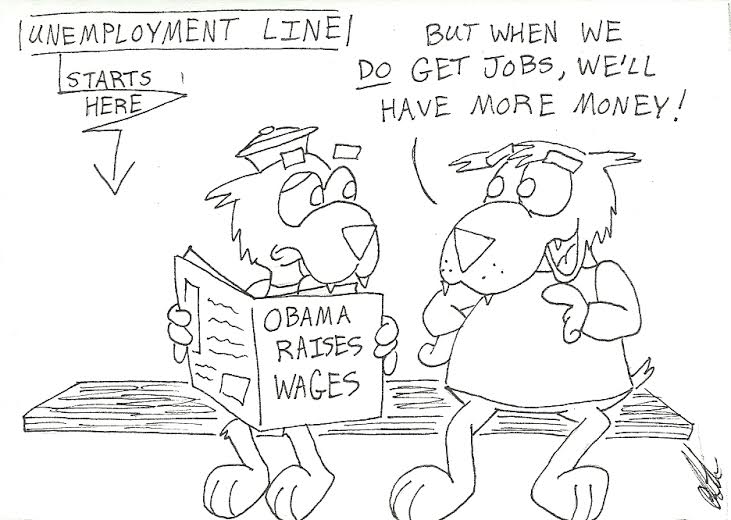As is the case with most topics debated by the United States government, the argument about minimum wage rests primarily in the hands of legislators who will not be directly affected by the bill.
In the wake of a string of seemingly endless hang-ups regarding the rollout of the Affordable Care Act, the administration of President Barack Obama has turned its sights on increasing the minimum wage throughout the country. Obama can’t run for re-election after his current term expires, politically freeing him to make increasingly bolder policy statements as his term runs out.
Here is the basic rundown of what’s happening in Washington, D.C. in regards to the debate: In this week’s address from the White House, Obama took the opportunity to ask Congress to “give America a raise,” according to The New York Times.
Currently, the federal minimum wage sits at a precocious $7.25 per hour, with some states having lower or higher figures assigned for hourly positions. According to the U.S. Department of Labor’s website, in states with laws differing from the $7.25 standard, employees “are entitled to the higher of the two minimum wages.”
Various exceptions and footnotes apply to this blanketing statement regarding wage in the U.S. For example, those who are tipped, such as waiters and waitresses, make a little more than $2 per hour with the expectation that tips will supplement that wage and become, in a word, “livable.”
Congressional Republicans, and a prominent sector of those who study economics, fear that raising the minimum wage will cut jobs and increase unemployment. Meanwhile, Obama and most of the political left argue that raising the federal minimum wage will bring close to a million Americans out of poverty.
There are more than a few questions that should be addressed regarding the feasibility of raising the federal minimum wage. First and foremost, more often than not, minimum wage is discussed in the context of being a “living wage.” What does that mean?
Essentially, minimum wage was established (as the name suggests) to ensure that even those working entry-level jobs would be able to remain afloat and out of complete poverty. Determining whether that number remains livable when fluctuations of market and prices are taken into account is tricky.
Economics isn’t fixed in time. Prices fluctuate and change. Strictly speaking, the cost of items considered to be luxurious in nature—such as televisions and cellphones—has become much more affordable, while big things in life have increased, such as housing and insurance. To boot, the United States has some of the most expensive healthcare costs in the entire world.
There is the time-honored argument of whether something such as setting a minimum wage belongs within the powers of the federal government or the states’ governments. It is simply foolish to argue that the federal government should be completely removed from the occasion.
If the government is unable to establish a minimum wage—or, even worse, if there is no requirement for a minimum wage at all, American citizens will be swept away by profit interest. It’s the same logic behind allowing insurance companies to run rampant in the name of unregulated capitalism.
To further complicate the matter, there is a lack of consensus among economists of every political sway regarding what will actually happen if the minimum wage is raised, in regards to the unemployment levels in the job market.
For example, according the Los Angeles Times, when polled, “A 2013 survey of [economists] asked whether raising the minimum wage to $9 an hour ‘would make it noticeably harder for low-skilled workers to find employment.’ Thirty-four percent said yes, 32 percent said no and 24 percent said they were not sure.”
I don’t believe raising the minimum wage fixes everything—far from it. Only so many people will be lifted from poverty if this happens. That being said, something needs to be done for those who work minimum-wage jobs for a livelihood who are unable to achieve upward mobility and maintain a standard of living.
American support is decidedly in favor of raising the federal base wage at least by some degree—regardless of the approval of the current sitting president.
A recent Gallup poll found that a whopping 76 percent of Americans support increasing the minimum wage to $9 per hour. The only thing standing in the way of this happening is the Republican majority in Congress.
Ultimately, neither solution is completely viable or without flaw. Understanding the morality behind raising the minimum wage, however, cannot be completely swept from the table. Politicians too often forget that the statistics they use to bolster their claims represent real citizens—real citizens working to survive.











